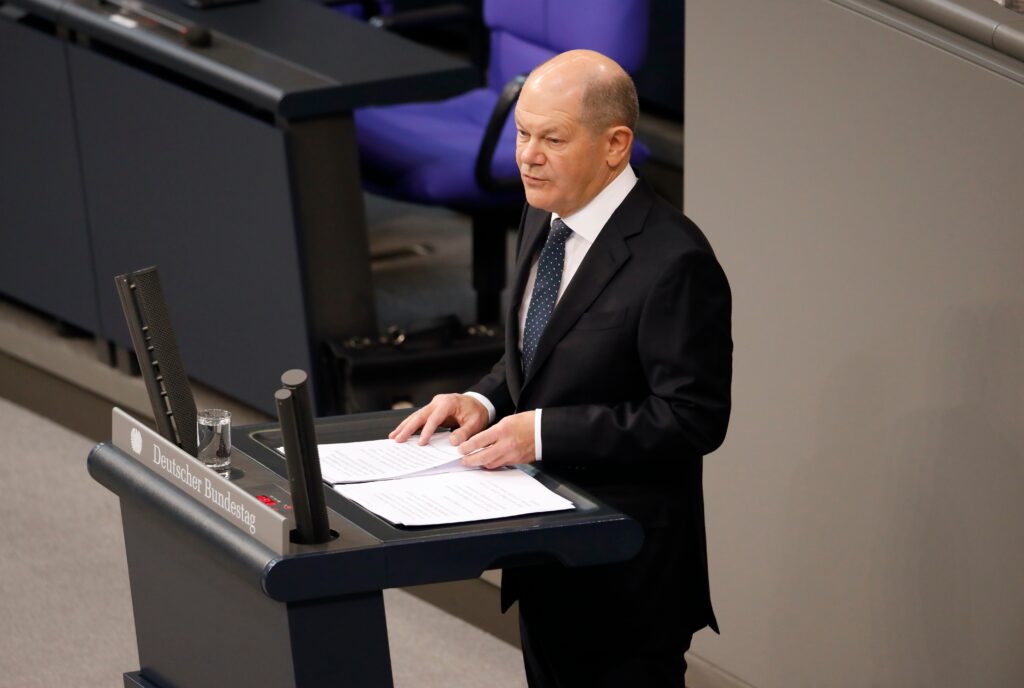German Chancellor Olaf Scholz has condemned opposition leader Friedrich Merz for accepting support from the far-right Alternative für Deutschland (AfD) to push through a controversial migration policy. Scholz accused Merz of breaking Germany’s political firewall against the far right, calling it an “unforgivable mistake.”
Merz introduced two non-binding motions in parliament, proposing tighter border controls and turning away asylum seekers. One of them, his “five-point plan” to curb irregular migration, narrowly passed with 348 votes in favor, 345 against, and 10 abstentions. The governing Social Democrats (SPD) and Greens argue the policy violates German and EU refugee laws.
Migration Debate Sparks Political Firestorm
Merz’s shift to stricter migration policies follows a knife attack by a rejected Afghan asylum seeker, who killed two people. The suspect had been receiving psychiatric treatment and was scheduled for deportation, but bureaucratic delays postponed the process. The incident, along with a recent SUV attack in Magdeburg that killed six people, has fueled public debate on immigration.
Critics accuse Merz of exploiting these events to shift the national conversation on migration to the right, just weeks before Germany’s February 23 election. The CDU/CSU, currently leading in polls, has adopted a tougher stance on immigration, a move that some see as an attempt to capture conservative voters amid growing support for the AfD.
CDU Faces Backlash Over AfD Cooperation
In a heated parliamentary debate, Scholz accused Merz of crossing a red line by relying on AfD votes. “You are working with those who fight against our democracy and poison our country’s political climate,” Scholz said.
Deputy Chancellor Robert Habeck (Greens) urged Merz: “Do not vote with racists. It is unnecessary and reckless.”
Merz defended his decision, calling the AfD’s support a last resort to pass essential reforms. “The AfD enabling a majority for a law for the first time makes me uncomfortable, but that does not make the law wrong,” he said.
AfD leader Alice Weidel celebrated the vote, declaring, “The so-called firewall is just an anti-democratic cartel agreement,” and claiming Merz’s migration policy had been “copied from us.”
Merz now plans to introduce a draft migration bill on Friday, though it cannot become law until after the election. If he becomes chancellor, he will likely push it through.
Polls Show Support for Merz’s Migration Policy, Churches Issue Warning
A recent Insa poll shows that 66% of Germans support Merz’s migration plan, including 56% of SPD voters. However, both the CDU/CSU and SPD have lost ground in polls, while the AfD has gained four percentage points.
Germany’s Protestant and Catholic churches issued a joint letter warning against CDU’s apparent willingness to cooperate with the AfD. “Breaking this political taboo could cause lasting damage to German democracy,” the letter stated.
The churches also criticized the tone and timing of the debate, warning it risks fueling prejudice against migrants rather than solving real challenges.


